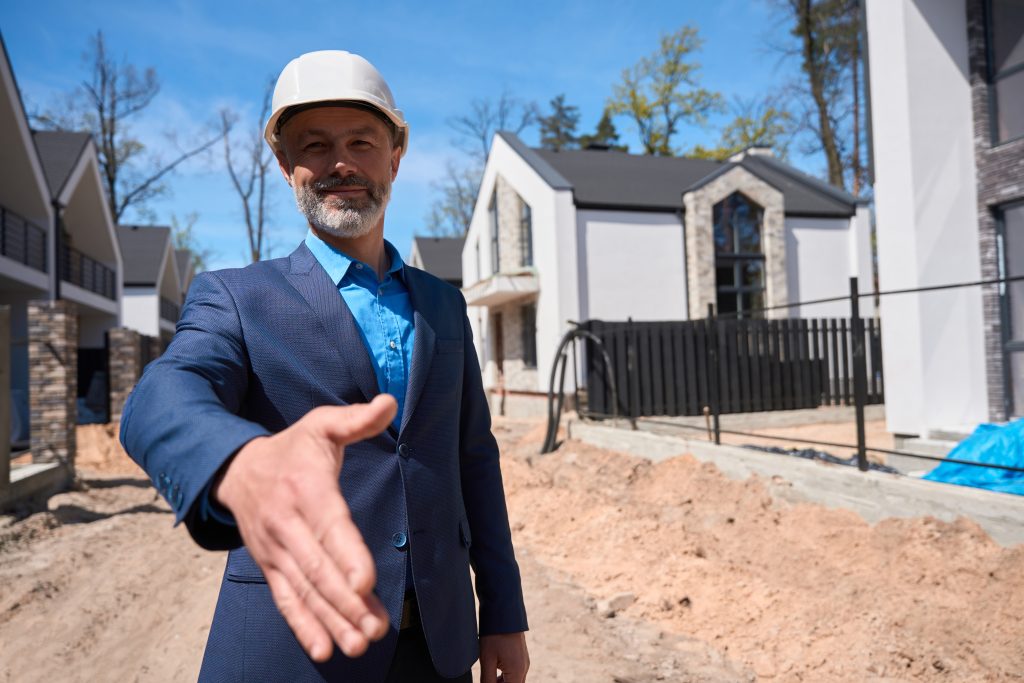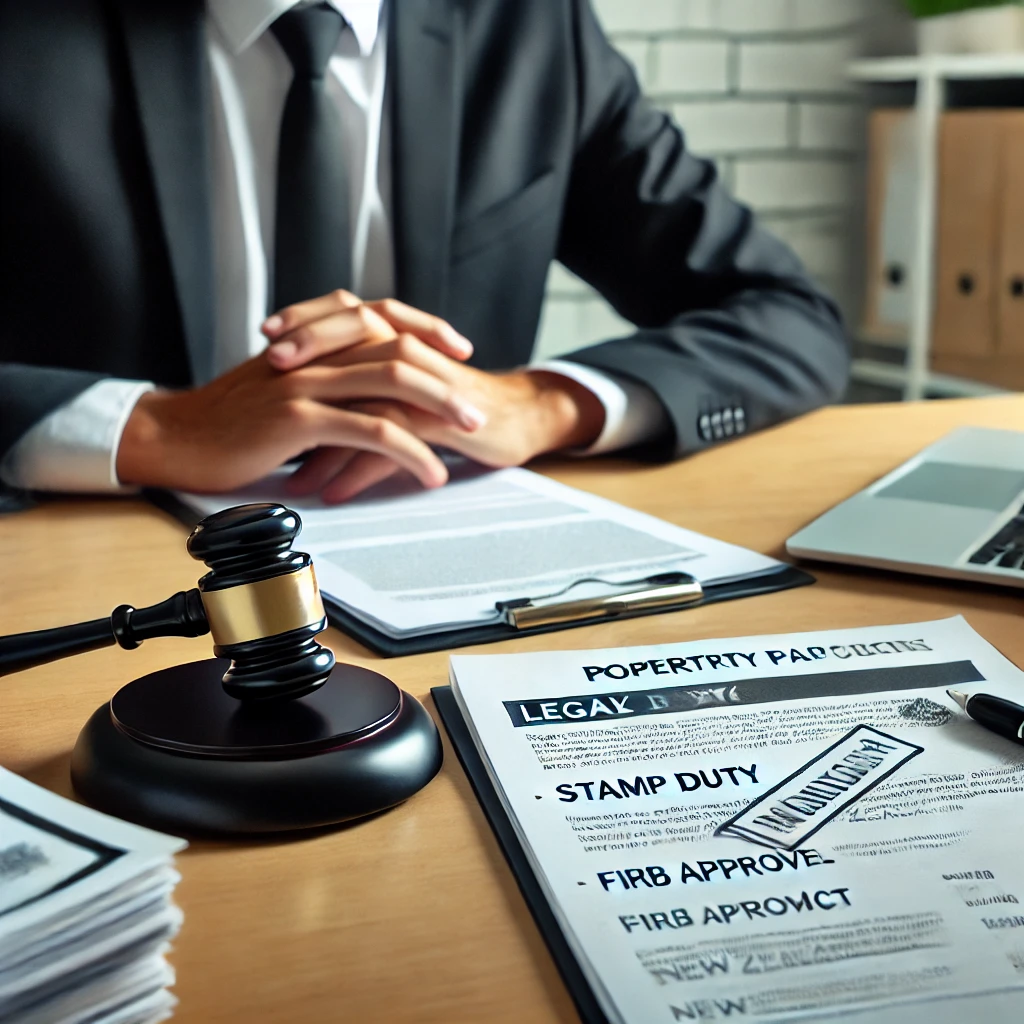No Time to Read? Here’s the Quick Version:
- New Zealand Citizens Can Buy in Australia: No special permission needed. You’re treated just like an Australian citizen for property purchases.
- Mortgage for Kiwis: Yes, you can get a mortgage in Australia, with a typical max loan of 80% of the property value. Some lenders even let you use equity from your NZ property.
- Home Guarantee Scheme: First-time homebuyers can purchase with as little as a 5% deposit. It’s available for New Zealand citizens, so make sure you check your eligibility.
- Stamp Duty and Taxes: Watch out for stamp duty (a state-based tax) that varies by location and property price. Plan for this extra cost when budgeting.
- FIRB Approval for Non-Residents: If you’re not living in Australia, you’ll need to apply for FIRB approval. But no worries, it’s a straightforward process if you’re buying a new property.
- Transferring Funds: Pay attention to currency exchange rates and transfer fees when moving money across the ditch. Choose a provider that gives you the best deal.
And remember, if you get lost in the legal or tax stuff, we can connect you with the best professionals at BH Accounting. We’ve got your back ! Happy house hunting !
So, you’re thinking about purchasing property in Australia—exciting, right? But before you start browsing the property market, let’s pause and talk about the tax implications and financial requirements. Whether you’re using your KiwiSaver to fund the deposit, exploring mortgage eligibility as a New Zealand citizen, or figuring out if you qualify for the First Home Owners Grant, understanding the rules is key.
Buying a house in Australia from New Zealand comes with its own set of challenges, including navigating the stamp duty and whether you need to get Foreign Investment Review Board (FIRB) approval. But don’t stress! It’s all possible with the right guidance. In this guide, I’ll walk you through the buying process, from securing your home loan to understanding capital gains tax and other financial considerations. Ready to invest in your future down under? Let’s dive in!
Can You Buy a House in Australia as a New Zealand Citizen?
So, you’re a Kiwi dreaming of owning property across the ditch in Australia? Good news—you don’t need to jump through any crazy hoops to make it happen. As a New Zealand citizen, you’ve got the green light to buy a house in Australia, and you won’t need to get special permission from the Aussie government. Unlike other foreign buyers, the process is way simpler for us Kiwis.
Eligibility for New Zealand Citizens
As a New Zealand citizen, buying a home in Australia is pretty straightforward. No Foreign Investment Review Board (FIRB) approval needed—you’re pretty much treated like an Australian citizen when it comes to property purchases. You just need to sort out the usual stuff, like securing your home loan and paying your stamp duty. Simple, right?
To put it into perspective, in 2021, over 20% of property purchases made by foreign nationals in Australia were from New Zealanders. So, you’re definitely not alone in thinking about making this move. The best part? You don’t have to jump through extra hoops like other foreign investors, so you can enjoy your gym membership without the added admin stress !
What About Non-Residents?
Okay, but what if you’re a New Zealand citizen, but not living in Australia full-time? Well, that’s where things get a little trickier. If you’re not living in Australia but still want to buy property, you’ll need to get FIRB approval. The Australian government requires non-residents to apply for this approval before you can proceed with purchasing a property.
While it might sound like an extra hassle, it’s not too bad. You’ll just need to submit an application, and if everything checks out, you’ll be good to go. But here’s the thing—non-residents are usually only allowed to buy new properties, not second-hand ones. So, if you’re looking at a newly built apartment or house, you’re on the right track!
In short, as a New Zealand citizen, you’re in a sweet spot for buying property in Australia, but if you’re not living there yet, you’ll need to get that FIRB approval. Either way, it’s totally doable with the right prep.
Financing Your Home Purchase in Australia
Alright, now we’re talking the fun stuff—financing your home purchase in Australia. It’s one thing to dream about owning a place in Australia, but the next step is making sure you have the right financial tools to back it up. Let’s break down how New Zealand citizens can secure a home loan in Australia, plus some extra perks like the Home Guarantee Scheme that could make your journey a little easier.

Can You Get a Mortgage as a New Zealand Citizen?
Good news for New Zealand citizens: you can absolutely get a mortgage in Australia. In fact, as an expat Kiwi, you’re in a pretty good position to secure a home loan, though it’s a bit different from buying in New Zealand.
- Eligibility: As long as you can prove your income and meet the lender’s requirements, you’ll be eligible for a mortgage. But note, the process might require you to jump through a few hoops, like proving your ability to repay the loan from overseas income.
- How Much Can You Borrow?: Typically, you’ll be able to borrow up to 80% of the property’s value, depending on the lender and your financial situation. For example, if you’re looking at a $500,000 home, you could borrow up to $400,000 and would need to cover the remaining 20% as a deposit.
| Property Value | Max Loan Amount (80%) | Deposit Required (20%) |
|---|---|---|
| $500,000 | $400,000 | $100,000 |
| $750,000 | $600,000 | $150,000 |
| $1,000,000 | $800,000 | $200,000 |
It’s worth mentioning that New Zealanders are often considered a lower risk for lenders than other foreign nationals, so this makes the process smoother.
Home Guarantee Scheme for New Zealanders
Now, here’s something that’s a game-changer—the Home Guarantee Scheme in Australia. This scheme is available for first-time homebuyers, and it’s especially beneficial for New Zealand citizens looking to buy their first home.
- What Is It?: The scheme allows first-time buyers to purchase a home with as little as a 5% deposit, instead of the usual 20%. This is huge for getting your foot in the door without having to save up a massive deposit.
- Eligibility: To qualify, you must be a first-time homebuyer, have a good credit history, and meet the income requirements. This is an excellent opportunity for New Zealanders to get into the Australian property market faster.
| Eligibility Criteria | Details |
|---|---|
| First-time buyer | Must be a first-time homebuyer in Australia |
| Deposit | Can buy with a 5% deposit |
| Income limit | Must meet the scheme’s income limit requirements |
| Australian citizen or permanent resident | Applies to New Zealanders as well |
- Update: As of 2022, the Australian government has increased the number of places available under the Home Guarantee Scheme, making it more accessible than ever.
Using Equity from New Zealand Property to Buy in Australia
If you already own property in New Zealand, there’s a good chance you can leverage the equity in your home to finance the purchase of a property in Australia. Some lenders allow Kiwi expats to use the equity in their New Zealand property as a deposit or part of the financing for an Australian home.
- How It Works: If your New Zealand property has increased in value, you can use the equity as collateral to back your Australian home loan. For example, if your New Zealand property is worth $600,000 and you owe $300,000 on it, you could potentially access the $300,000 equity to use for your Australian property.
| Property Value (NZ) | Loan Balance (NZ) | Available Equity | Potential Equity for Australian Purchase |
|---|---|---|---|
| $600,000 | $300,000 | $300,000 | Up to $300,000 for an Australian purchase |
| $800,000 | $350,000 | $450,000 | Up to $450,000 for an Australian purchase |
| $1,000,000 | $500,000 | $500,000 | Up to $500,000 for an Australian purchase |
This can be a fantastic way to enter the Australian market without having to save up for a hefty deposit. Just keep in mind that lenders will need to assess your New Zealand property’s value, and you may face additional fees or higher interest rates for using equity in a foreign property.

The Buying Process: Step-by-Step
Alright, so you’ve made the decision to buy property in Australia from New Zealand—now it’s time to get down to the nitty-gritty. Don’t worry, it’s not as overwhelming as it seems. I’ll break it all down for you, step-by-step, from getting your head around the property market to securing your financing and finally transferring funds across the ditch.
What’s the Process of Buying a Home in Australia from NZ?
Here’s how the process typically goes when buying a home in Australia from New Zealand:
- Research the Property Market: Start by doing some homework on the Australian property market. Whether you’re eyeing Sydney, Melbourne, or somewhere more laid-back like Brisbane, it’s important to understand the market trends, prices, and the best areas to invest in.
- Check Your Eligibility and Financing: Before you get too excited, figure out how much you can borrow and what the loan-to-value ratio (LVR) is. As a New Zealander, you can borrow up to 80% of the property’s value in some cases, depending on your financial standing.
- Hire a Conveyancer or Lawyer: This is a crucial step. When you buy property in Australia, you’ll need someone to handle the legal side of things. We’ll talk more about this in a sec, but it’s important to have a qualified professional guiding you through the paperwork. Get in touch with us if you need help !
- Make an Offer and Secure the Property: Once you’ve found the property, you can make an offer. If it’s accepted, you’ll need to pay a deposit and sign the contract. You’ll also want to check out the conditions in the contract, which can be a little tricky, so make sure you’re fully clear on everything.
- Transfer Funds and Complete the Purchase: After the offer is accepted and all the paperwork is done, you’ll need to transfer the funds across the ditch. This might involve currency exchange fees and a few extra charges, so it’s best to stay on top of this process.
- Settlement: The final step is settlement, which typically happens within 30 to 60 days of your offer being accepted. This is when the title of the property officially changes to your name, and you’re the proud owner of an Australian property.
Do You Need a Conveyancer or Lawyer?
In Australia, it’s mandatory to have a conveyancer or lawyer involved in the property transaction. Here’s why:
- Legal Requirements: A conveyancer or lawyer ensures that the property transfer is done in accordance with Australian law. They’ll help you navigate the contract and handle all the necessary paperwork.
- Role of a Conveyancer: They manage everything from checking the title of the property to making sure there are no outstanding issues with the property. They will also assist with transferring the property title into your name and dealing with government authorities.
- Costs: The fees for a conveyancer can range anywhere from $1,000 to $2,500 depending on the complexity of the transaction. It might seem like an extra expense, but trust me, it’s worth it to make sure everything is above board and you’re legally protected.
Example: If you’re buying a property worth $500,000, a conveyancer’s fee could be around $1,500, which is a small price to pay for peace of mind and smooth sailing through the legal side of things.
What Taxes Do You Need to Consider When Buying a House in Australia?
Now, let’s talk about the boring stuff—I know, I know, taxes aren’t exactly the most thrilling topic, but hey, we need to get this sorted before you go making an offer on that dream Aussie property. So, grab your coffee (or wine, no judgment) because it’s time to dive into the tax side of things!
What Is the GST and How Does It Affect Your Purchase?
Alright, here’s the deal with GST (Goods and Services Tax) in Australia—it doesn’t always apply to residential properties. In fact, GST is usually excluded from the sale of established residential properties, so no need to worry about adding an extra 10% on top of your purchase price (phew!).
But hold on, if you’re looking at a new development or property that’s being sold as part of a business transaction, GST will likely come into play. For example, if you’re buying a newly built home from a developer, you can expect to pay 10% GST on top of the asking price.
- GST on New Developments: If you’re eyeing something freshly built, you’ll probably need to pay GST on that property. Keep an eye on it though, because some sellers might already include GST in their price.
- What About Other Services? If you’re buying property and getting additional services like property management or consulting, GST may apply there too.
Example: If you’re buying a newly built home for $500,000, you could be looking at paying an extra $50,000 in GST. So, make sure you’re clear about whether that GST is included in the price or if you’ll need to pay it separately.
Capital Gains Tax and Other Taxes
Now, let’s get into the fun stuff—Capital Gains Tax (CGT). If you’re planning to flip that Aussie property or hold onto it as an investment, CGT is something you need to keep in mind.
Here’s how it works: When you sell a property and make a profit, the Aussie taxman (aka the ATO) will take a slice of the action in the form of CGT. The key thing here is that CGT doesn’t apply if you’re selling the property within your primary residence (i.e., it’s your home), but if it’s an investment property, you’ll need to pay it on the profits.
- CGT for Foreign Buyers: As a New Zealand citizen, you’ll pay CGT on your property profits, just like an Australian resident. This applies whether you’re selling after a few years or decades down the track.
- How Much Is CGT? The rate depends on how long you’ve held the property. If you’ve owned the property for more than 12 months, you can get a discount of up to 50% on the capital gains tax, which can be a decent chunk of change.
Example: Let’s say you buy an investment property for $500,000 and sell it a few years later for $700,000, making a $200,000 profit. Depending on your income tax bracket and how long you’ve owned the property, you’ll be on the hook for CGT, which could be around 25-30% of that $200,000 profit. Not great, but still manageable if you plan ahead.

What Taxes Do You Need to Consider When Buying a House in Australia?
Alright, here we go. We’ve tackled the boring stuff with taxes, and now it’s time for legal stuff—and let’s face it, legal is pretty much like accounting: dry. But don’t worry, I’ll make it quick and painless, and throw in some solid examples so you don’t feel like you’re falling asleep mid-read.
What Is Stamp Duty and How Does It Affect Your Purchase?
Stamp duty is one of those taxes that can catch you off guard if you don’t plan for it. It’s a state-based tax that you pay when you buy a property in Australia, and it’s based on the purchase price or market value of the property (whichever is higher).
The rates vary depending on which state or territory you’re buying in, and the price of the property you’re purchasing. It’s one of those “ah, I didn’t realise that” costs, but once you’re clued in, it won’t seem so scary.
- How Much Is Stamp Duty? For example, in New South Wales (NSW), the stamp duty on a property worth $500,000 would be around $17,000. If you’re buying a $1 million property in Victoria (VIC), you might be looking at about $50,000 in stamp duty! (Yeah, that’s a serious chunk of change). But it does vary depending on the state and the value of the property, so make sure you’re checking what applies where you’re buying.
- First-Time Buyer Relief: Lucky for some, first-time buyers can often get some relief on stamp duty. For example, in NSW, if you’re a first-time buyer purchasing a property worth up to $650,000, you could get full stamp duty exemption. If your property is worth more, you might still get a discount. This can save you thousands of dollars. But once you go over that threshold, you’ll be back to paying full whack.
Example: Let’s say you’ve found a lovely place in Brisbane (QLD), priced at $800,000. You’ll be looking at a stamp duty bill of about $25,000—so make sure you’ve budgeted for that. Remember, this doesn’t just magically disappear after you pay the property price, it’s an additional expense to plan for.
Can You Avoid Paying Stamp Duty?
Alright, let’s be real for a second. You’re not going to dodge stamp duty—unless you’re lucky enough to fit the criteria for exemptions or concessions (and that’s a whole other ball game). But, there’s always the chance you could benefit from some discounts or waivers, especially if you’re buying off the plan (new properties).
- Off-The-Plan Purchases: In some states, if you buy a property off the plan (i.e., before it’s even built), you might be eligible for a discounted rate on stamp duty. It’s not always a huge saving, but it can help ease the pain a bit.
- Buy in a Different State? If you can’t get stamp duty relief in one state, consider shopping around in a state with lower stamp duty rates. For instance, South Australia (SA) might offer better rates than New South Wales for a similar property price.
Example: You’re looking at a beautiful new apartment in Sydney for $700,000. With stamp duty at around $25,000, it’s a serious expense. But if you buy a similar property in Adelaide, you might only pay around $20,000—worth looking into if you have a bit of flexibility.
So, while stamp duty is another one of those “not-so-fun” things you’ll have to shell out for, it’s not as scary as it sounds once you know what you’re up against. Just remember to plan for it, and you’ll be all good to go!
Pro tip : Use this only calculator to do your due diligence.

Final Steps and Making the Move
Alright, we’re almost there! You’ve bought your slice of Australia, the stamp duty’s been paid, and you’re feeling pretty good about your new property. But hold up—before you start unpacking your bags, let’s go over the last few steps. Trust me, this part matters.
Transferring Funds and Currency Exchange
Now, it’s time to get your money across to Australia—and let’s be real, it’s not as simple as just throwing some cash into an envelope. When transferring funds, you need to keep an eye on a few things: currency exchange rates and transfer fees.
Here’s the deal—New Zealanders can easily transfer funds to Australia through banks, money transfer services, or even online currency exchange platforms. But let’s be honest, it’s not always cheap.
| Aspect | Consideration | Example |
|---|---|---|
| Exchange Rates | Always check the exchange rate before transferring. A poor exchange rate can cost you hundreds or thousands of dollars. | At 0.92 NZD to AUD, transferring $500,000 NZD will get you only $460,000 AUD. |
| Transfer Fees | Some services charge a flat fee, while others take a percentage. | Transferring $100,000 NZD could cost you a $300 fee depending on your provider. |
So, before you hit ‘send’ on that transfer, make sure you’re getting the best exchange rate and fees to avoid paying more than you need to.
What Happens After You Buy?
Congrats! The property’s yours, but your journey’s not over just yet. There are a few more things you’ll need to handle once the property is bought.
| Step | What You Need to Do |
|---|---|
| Registering the Property | After the purchase, you’ll need to officially register the property in your name with the local authority. This is a legal requirement, and the process is usually done through your conveyancer or lawyer. |
| Paying Ongoing Taxes | The tax responsibilities don’t stop once you’ve bought the property. You’ll need to keep track of local council rates, land tax, and potentially capital gains tax if you plan to sell the property for a profit down the road. |
| Managing Your Investment | If you’re buying the property as an investment, you’ll need to decide whether you want to manage the property yourself or hire a property manager. They can help with everything from finding tenants to handling maintenance and ensuring everything’s compliant with local laws. |
The best part? If you’re feeling a bit overwhelmed by all this, don’t worry—you don’t have to navigate this alone. At BH Accounting, we can help you find the best accountants and lawyers specialized in overseas affairs. They’ll guide you through the nitty-gritty of international property investment and make sure everything’s on track.
Wrapping up
Alright, here we are—if buying a house in Australia from New Zealand seems like a lot, don’t worry, you’re not alone. It’s a mix of understanding GST, stamp duty, and figuring out how to transfer those funds without losing a chunk of cash in fees. But once you know what you’re doing, it’s just a matter of following the steps.
Whether you’re using your KiwiSaver or making the most of the Home Guarantee Scheme, you’ve got the tools to make it happen. The legal and tax stuff? Well, that’s the boring part (but important, so don’t skip it!).
Need a hand with the tax or legal side? No stress—at BH Accounting, we’re happy to connect you with the best pros in the game. We’ll help you stay on top of it all and keep things easy. Happy house hunting!
